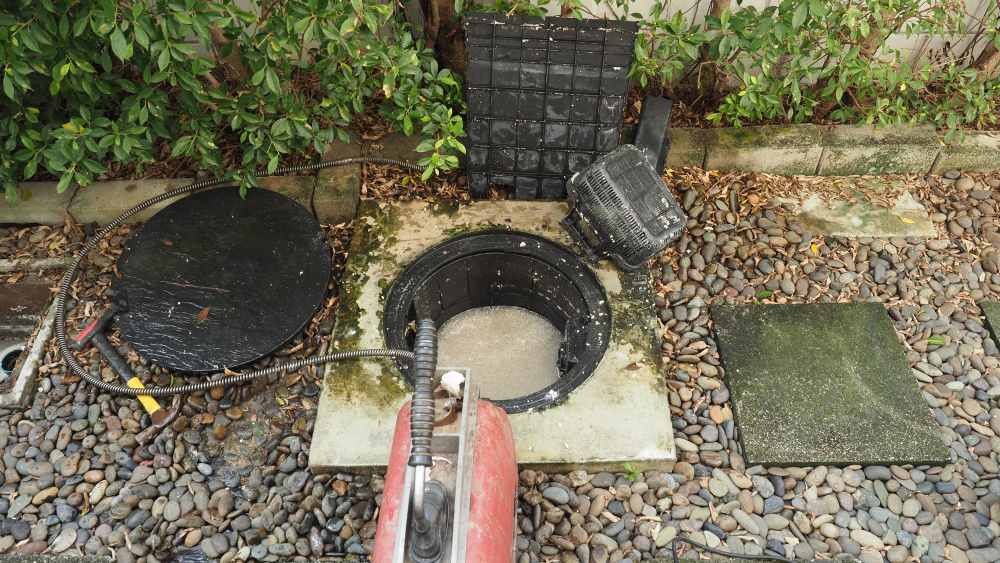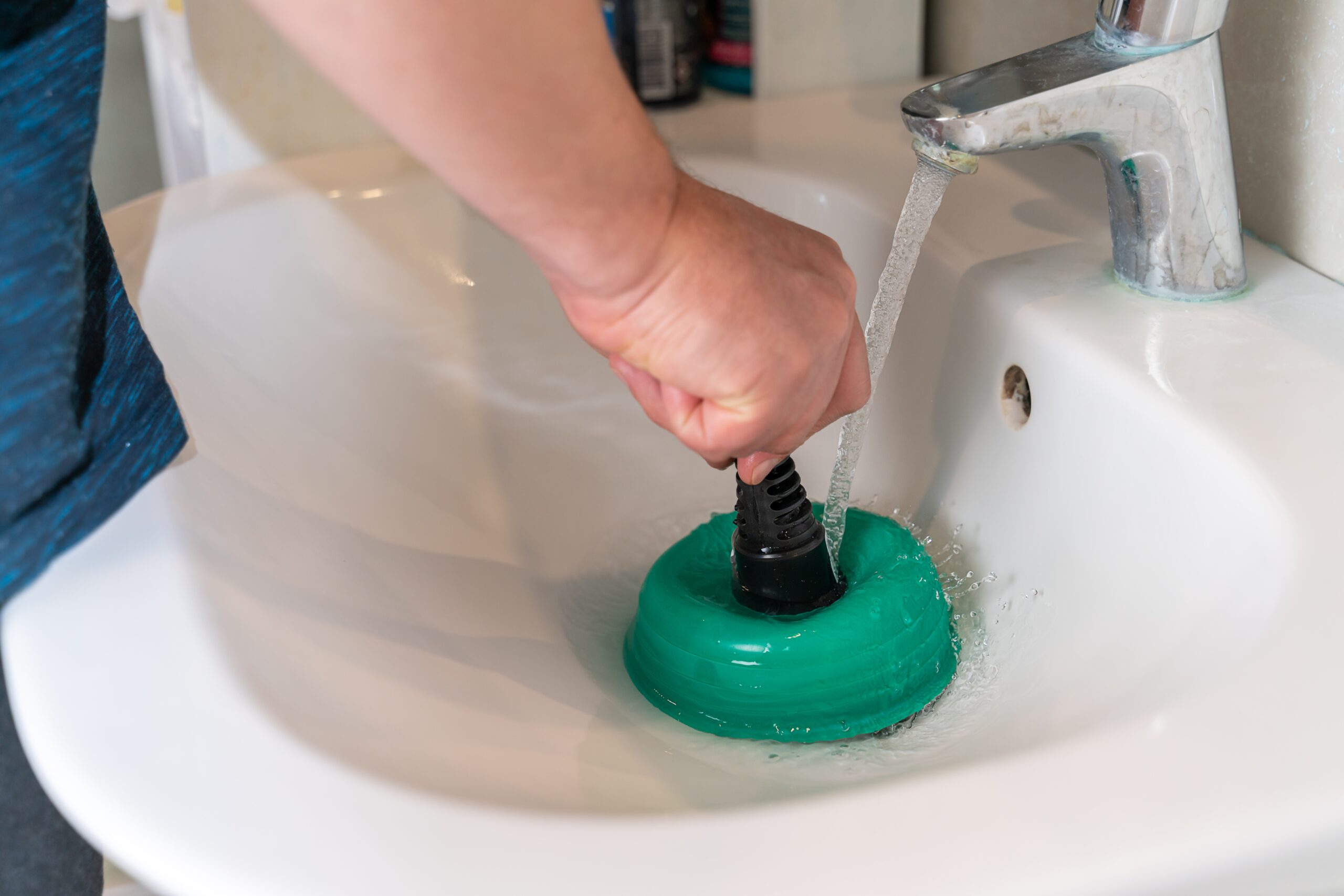They are making a number of good points relating to How to handle a clogged drain in your home overall in this great article followed below.

Intro
Handling an obstructed drainpipe can be an irritating experience, interfering with everyday activities and possibly causing damages to your residential property. However, prior to connecting to plumbing specialists, there are steps you can take to address the problem on your own. In this overview, we'll discover DIY remedies and preventive measures to deal with an obstructed drain successfully.
Determining the Concern
The very first step in attending to a blocked drain is acknowledging the indications. Sluggish drain, gurgling sounds, foul odors rising from drains pipes, or water backing up prevail signs of an obstructed drain. Recognizing these indications early can help prevent better difficulties.
Common Causes of Obstructed Drainpipes
Understanding the aspects that contribute to drain pipes blockages is essential for efficient resolution. Usual offenders include hair, soap residue, oil, food particles, and international items like sanitary items or paper towels. Tree origins getting into underground pipelines can likewise create substantial clogs.
DIY Solutions
For minor blockages, several DIY solutions can be efficient. Putting boiling water down the drain can help dissolve oil and debris. Baking soda and vinegar or a blend of salt and cooking soft drink can work as all-natural cleansers. Utilizing a plunger or plumbing serpent to dislodge blockages is one more alternative.
Tools and Equipment
Having the right devices accessible can make DIY drainpipe cleaning up more reliable. A bettor is a flexible device for removing clogs in sinks, commodes, and showers. A plumbing snake or auger can reach much deeper clogs, while drainpipe cleaning chemicals can be utilized very carefully for persistent obstructions.
Preventive Measures
To prevent future blockages, adopting preventive measures is important. Set up drainpipe guards or strainers to catch hair and debris before they enter the pipes. Regularly flush drains with hot water to dissolve oil accumulation, and prevent disposing of oil or strong waste down the tubes.
When to Call a Professional
While do it yourself solutions can solve small clogs, specific indications show the need for professional assistance. Consistent blockages, foul odors in spite of cleaning up efforts, or several drains pipes backing up simultaneously are red flags that warrant expert intervention.
Choosing the Right Plumbing Solution
When choosing a plumbing service, take into consideration elements such as experience, licensing, and customer evaluations. Choose a reliable plumbing professional with a performance history of high quality handiwork and clear rates methods.
Cost Considerations
The price of specialist drain cleaning company can vary depending upon the extent of the obstruction and the plumbing professional's prices. Request quotes from several companies and ask about any surcharges to make certain openness and prevent surprises.
Safety Precautions
When trying DIY drainpipe cleaning, prioritize security. Put on safety gloves and eyeglasses to prevent contact with harmful chemicals or germs. Never ever mix various drain cleansing items, as this can create hazardous fumes.
Situation Researches
Real-life examples illustrate the efficiency of DIY options and the importance of timely professional intervention in fixing drainpipe obstructions.
Final thought
By following the pointers laid out in this guide, you can efficiently tackle obstructed drains and stop future pipes problems. Whether going with do it yourself solutions or seeking expert support, prompt activity is essential to preserving a healthy and balanced plumbing system and protecting the honesty of your home.
How to Clear a Clogged Drain Yourself (And When to Call In the Professionals)
What Can Clog a Drain
Dirt Skin flakes Hair Grease Soap scum Food Offset pipes Tree roots Small objects Mineral buildup DIY Tricks to Unclog a Drain
You can fix this! Once you have identified the source of the clog (or have a vague idea), you can try one or a combination of these fixes in order to clear your plumbing.
Wire Hanger or Snake
Untangle and clear out hair from a drainpipe with a homemade snake. Use a straightened-out wire hanger with a 90-degree angle hook to locate the clog and drag out any unwanted material.
Remember not to push the clog further down to where the wire hanger cannot reach! If you need to follow up with a plunger, give it a try. Your efforts might be more successful after it’s been wire-snaked.
If you want to get fancy and don’t have a wire hanger to spare, head to the store and pick up a hand-operated drain snake. You can get one for $10-$30. It may save you the hassle, and provide additional length to reach deep into the clogged pipe.
Plunger
A cup plunger has a suction cup attached to a wooden handle. The rubber creates a seal around the drain, and increases the pressure force of the plunger.
Plunge for 30-second increments to loosen the clog. This may need to be repeated over the course of 15-20 minutes. Once plunged, run the water to flush the remaining material out of the drain.
Remember– never use a plunger if you have used a chemical drain cleaner. These chemicals can splash up from the force of the plunger and cause serious injury or burns.
Boiling Water
Hot water can sometimes break up materials into a flushable amount. Dirt, grease, and soap buildup requires heat in order to unstick from surfaces.
Take your kitchen kettle and heat your water to a boil. Once it reaches a rolling boil, pour it directly down the drain into the blockage. Carefully follow with plunging, if necessary.
Don’t worry if this takes more than one try! It can often take multiple kettles and repeated plunging in order to clear a particularly stubborn clog.
Chemical Drain Cleaner
As a last resort, pick up a bottle of chemical drain cleaner. Drain-cleaning chemicals are potent, and not very good for the environment.
You may need to wear protective eyewear in gloves before handling your bottle of chemical drain cleaner. Follow the instructions printed on the bottle, and flush with water as soon as the instructions allow. Do not follow with plunging.
Baking Soda and Vinegar
As a safer alternative to chemical drain cleaner, baking soda and vinegar can create a chemical reaction that clears tough clogs.
Combine one cup of cleaning vinegar with one cup of boiling water, and set aside. Once you have done this, pour half a cup of baking soda down the drain. Give the baking thirty seconds to settle and cover a large portion of the problem drain.
Following the baking soda, pour down your vinegar and hot water solution. Once the vinegar and baking soda combine, the mixture will bubble and fix. Let this reaction fizzle in the drain for about an hour.
After an hour, follow with a kettle’s worth of hot water. The heat and liquid should flush out any remaining material.
When to Call a Plumber
If your DIY attempts haven’t cleared your clog drain, it’s time to call in a professional. It’s not worth losing access to your kitchen sink or high-traffic bathroom. A clog in a vital area can keep you from the things you’d rather be doing, and derail your routine.
Anytime a clog is causing water to spread is a time to call in a plumbing service. What starts out as a little bit of water can quickly grow into serious, expensive water damage.
Additionally, a serious clog can result in burst pipes or serious leaks. Make sure you know when to take it seriously!
https://myguysnow.com/how-to-clear-a-clogged-drain-yourself-and-when-to-call-in-the-professionals/

Do you appreciate more info about Some easy tips to fix blocked drains? Put a comment down below. We will be pleased to hear your ideas about this blog posting. Hoping that you come back again in the near future. So long as you enjoyed our blog entry kindly remember to share it. I enjoy reading our article about Tips for Dealing with Clogged Drains and Sewer Lines.
Call
 Haley Joel Osment Then & Now!
Haley Joel Osment Then & Now! Jake Lloyd Then & Now!
Jake Lloyd Then & Now! Neve Campbell Then & Now!
Neve Campbell Then & Now! Taran Noah Smith Then & Now!
Taran Noah Smith Then & Now! Melissa Joan Hart Then & Now!
Melissa Joan Hart Then & Now!